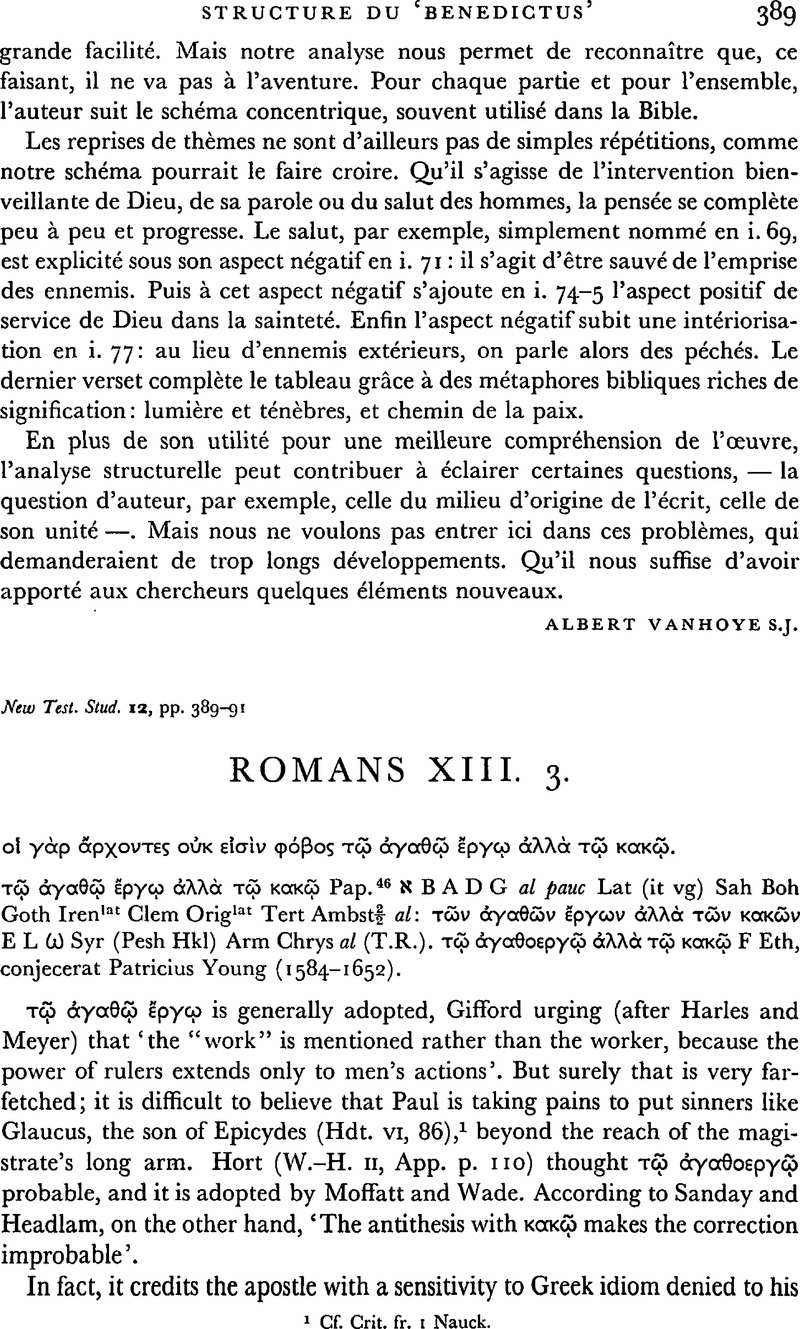No CrossRef data available.
Published online by Cambridge University Press: 05 February 2009

page 389 note 1 Cf. Crit. fr. 1 Nauck.
page 390 note 1 Field accepts both αύτοσοϕια and χολήν (see his note on the latter passage). I feel certain that he is right. Proclivi lectioni prastat ardua.
page 391 note 1 ? Cf. Peshitto.
page 391 note 2 Does Gen. xxi. 12 supply a Semitic example? The context seems to me to suggest a negative reply, but of course I cannot begin to answer the question.
page 391 note 3 For the modal implication (‘can’, ‘may’) cf. Soph. O.C. 1526 ![]() (‘and may not be profaned by speech’, Campbell), Thuc. III, 112, 4
(‘and may not be profaned by speech’, Campbell), Thuc. III, 112, 4 ![]() (‘indistinguishable’), D. Sic. v, 23, I μύθους παντελως άπıςτουένος (‘incredible’), N.T. Heb. xii. 18
(‘indistinguishable’), D. Sic. v, 23, I μύθους παντελως άπıςτουένος (‘incredible’), N.T. Heb. xii. 18 ![]() , 27 τά μή σαλευὀμενα (immobilia Vulg.), Epict. 1, 29, 35 ού βαστά
, 27 τά μή σαλευὀμενα (immobilia Vulg.), Epict. 1, 29, 35 ού βαστά![]() εı με (‘can't lift’), Athan. Inc. 43, 2Google Scholar
εı με (‘can't lift’), Athan. Inc. 43, 2Google Scholar![]() (‘can bear it’).
(‘can bear it’).
page 391 note 4 For Мελıτη ή νῆσσος = ‘the Island of Malta’ cf. Hdt. v, 125 ![]() Thuc. III, 33, 3 Πάτμουτῆσ νῆσου, Arr.Google ScholarAn. II, 2Google Scholar, 5
Thuc. III, 33, 3 Πάτμουτῆσ νῆσου, Arr.Google ScholarAn. II, 2Google Scholar, 5 ![]() , Diog. L. 1, 119
, Diog. L. 1, 119 ![]() .
.